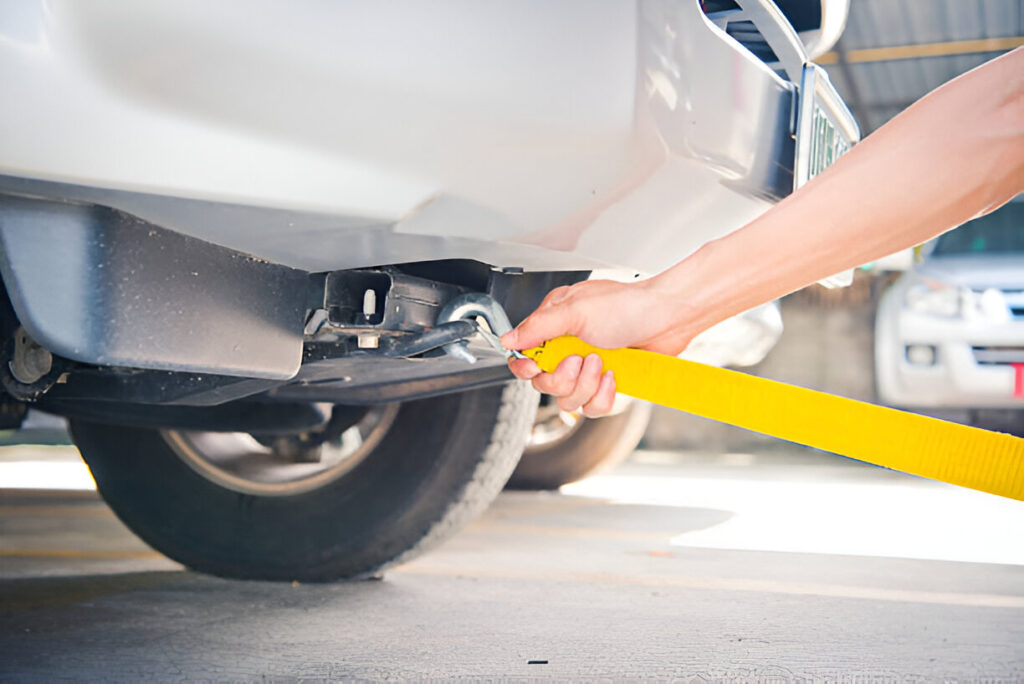Picture this: your towing company is a ship sailing through the seas of regulations and requirements. The journey can be thrilling, yet it demands a careful approach to ensure smooth sailing. Embracing compliance in the towing industry isn’t just about following rules; it’s about building a sturdy vessel that can weather any storm.
Compliance is the compass that guides your business toward success, ensuring you stay on course while avoiding legal pitfalls. Understanding these regulations helps you create a trustworthy relationship with your clients and fosters a safe environment for your employees.
The Mysterious Land of Compliance
What exactly is compliance in the towing industry? Imagine it as a treasure map, where each regulation and requirement is a clue leading you toward a successful business. Compliance refers to following all the rules and guidelines set by state, local, and federal authorities. These regulations ensure safety, fairness, and responsibility in every aspect of your operation, from your drivers’ qualifications to your vehicle maintenance practices.
Local and State Regulations: The First Puzzle Pieces
Each state and locality has its own set of rules for towing businesses. These can include:
- Licensing Requirements: Think of these as your passport to operate legally. Without the right licenses for your business, vehicles, and drivers, you might find yourself stranded in the bureaucratic wilderness.
- Insurance Needs: Consider insurance as your safety net. It includes protection for your business vehicles, your business operations, and your workers, protecting you from unforeseen accidents and liabilities.
- Environmental Compliance: Ever thought about what happens to that oil and gasoline you handle? Disposing of hazardous materials safely is essential to prevent environmental damage.
- Vehicle Equipment Standards: Regular inspections and equipment guidelines ensure your fleet is in top-notch condition, preventing breakdowns and ensuring safety on the road.
Federal Regulations: The Bigger Picture
At the federal level, the rules get more intricate but equally important:
- Department of Transportation (DOT) Requirements: These are your roadmaps, guiding you on safety standards and operational protocols.
- Federal Motor Carrier Safety Administration (FMCSA) Guidelines: These guidelines help manage risks and ensure your operations are up to national safety standards.
- Hours of Service (HOS) Regulations: These rules ensure your drivers aren’t overworked, which helps keep roads safe for everyone.
Training and Documentation: Your Survival Kit
Having a trained team and proper documentation is like packing your gear for a safe expedition. It involves:
- Safety Training Programs: Equip your team with the knowledge and skills needed to handle towing safely and efficiently.
- Compliance Awareness: Regular updates and training keep everyone informed about the latest regulations and best practices.
- Accurate Record-Keeping: Tools like electronic logging devices and compliance management software are invaluable for maintaining thorough records of inspections, incidents, and employee performance.
Implementing Compliance Strategies: Your Plan of Action
Creating a business compliance plan is akin to plotting your route before setting off on an adventure. This involves:
- Establishing Policies and Procedures: Clear guidelines help maintain consistent operations and prevent non-compliance penalties.
- Regular Audits and Reviews: These ensure your business is on track and helps you quickly adapt to any changes in regulations.
- Leveraging Technology: Tools like GPS tracking systems and electronic logs not only simplify compliance but also enhance operational efficiency.
The Trials and Triumphs of Compliance
The road to compliance isn’t always smooth. You’ll encounter challenges such as:
- Keeping Up with Regulations: Rules can change, and staying informed is vital.
- Ensuring Consistent Compliance: It’s easy to stray off course, but regular training and clear communication can help keep your team aligned.
- Handling Penalties: Mistakes happen, but knowing how to address them swiftly can mitigate their impact.
- Insurance and Coverage Complexities: Navigating the insurance landscape can be tricky. It involves ensuring your coverage is comprehensive and up to date, protecting your business from a myriad of risks. This includes not only liability insurance but also coverage for your fleet, equipment, and employees. Understanding the nuances of each policy and regularly reviewing your coverage can prevent gaps that could leave your business vulnerable.
Best Practices: Your Compass
To successfully navigate compliance, consider these best practices:
- Continuous Training: Keep your team updated on regulations and safety procedures through regular training sessions. This not only reinforces compliance but also emphasizes the importance of safety and risk management.
- Collaborate with Industry Experts: Working with industry associations and regulatory bodies can provide valuable insights and support. They can also keep you informed about emerging trends and changes in regulations that might affect your insurance requirements.
- Comprehensive Insurance Review: Regularly assess your insurance policies to ensure they align with your current operational needs and regulatory requirements. Consult with insurance specialists to understand any potential liabilities and gaps in coverage, so your business is protected against unexpected claims and accidents.
- Seek Legal Guidance: Having a legal advisor ensures you’re well-prepared to handle any compliance challenges that arise. They can also offer advice on liability issues and help you understand the legal implications of your insurance coverage.
- Implement Risk Management Strategies: Develop and maintain a robust risk management plan that includes regular safety audits and incident reviews. This proactive approach not only helps in minimizing liabilities but also in negotiating better insurance terms.
The Journey Continues
In the towing industry, compliance isn’t just a destination—it’s an ongoing journey. By embracing this adventure with a spirit of curiosity and responsibility, your towing business can thrive in a competitive landscape. Regularly review your compliance practices, engage with industry experts, and invest in continuous training for your team. These efforts will not only keep your operations legal and efficient but also enhance your reputation as a reliable and trustworthy towing service.
As you continue on this journey, remember that the road ahead is full of opportunities to learn and grow. Stay curious, stay informed, and keep towing the line!


